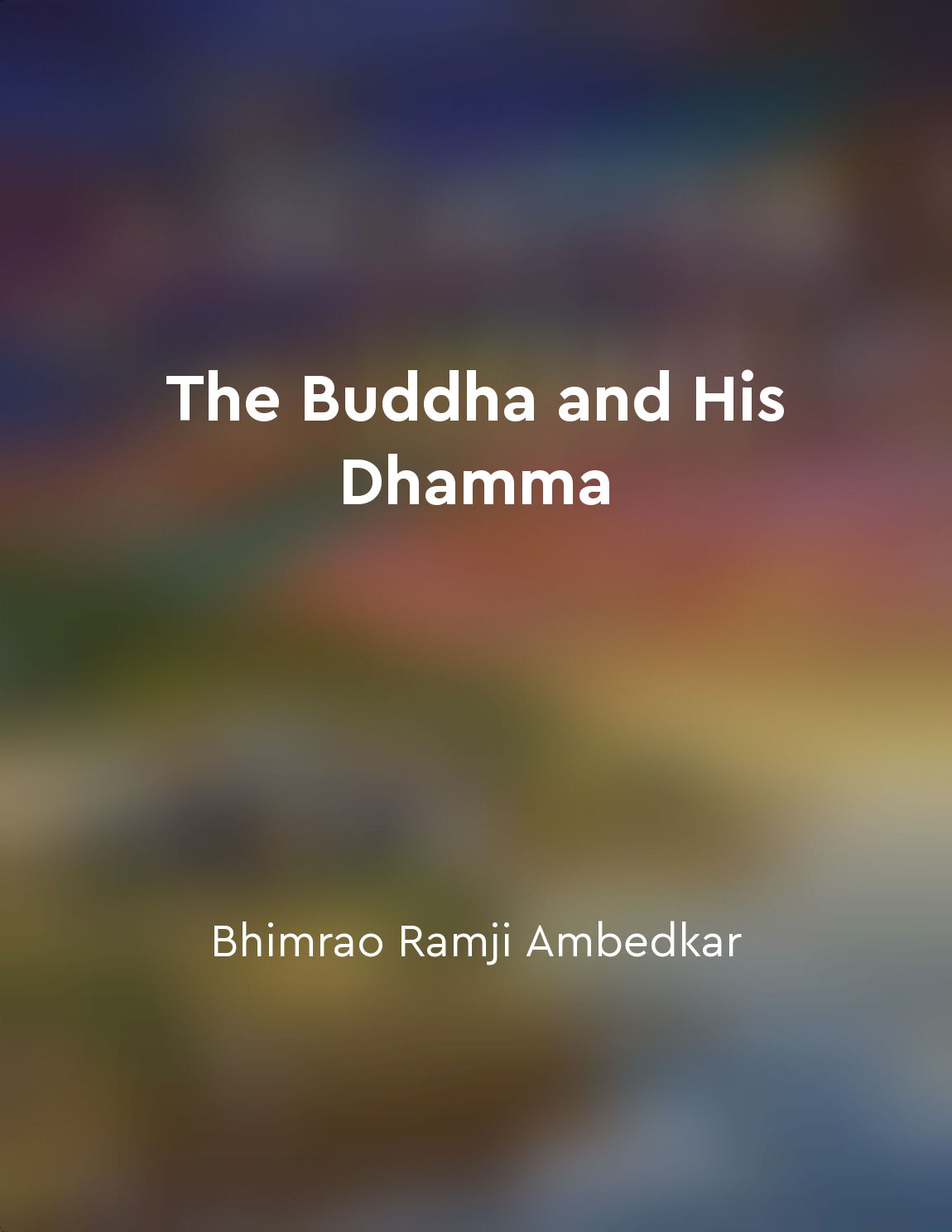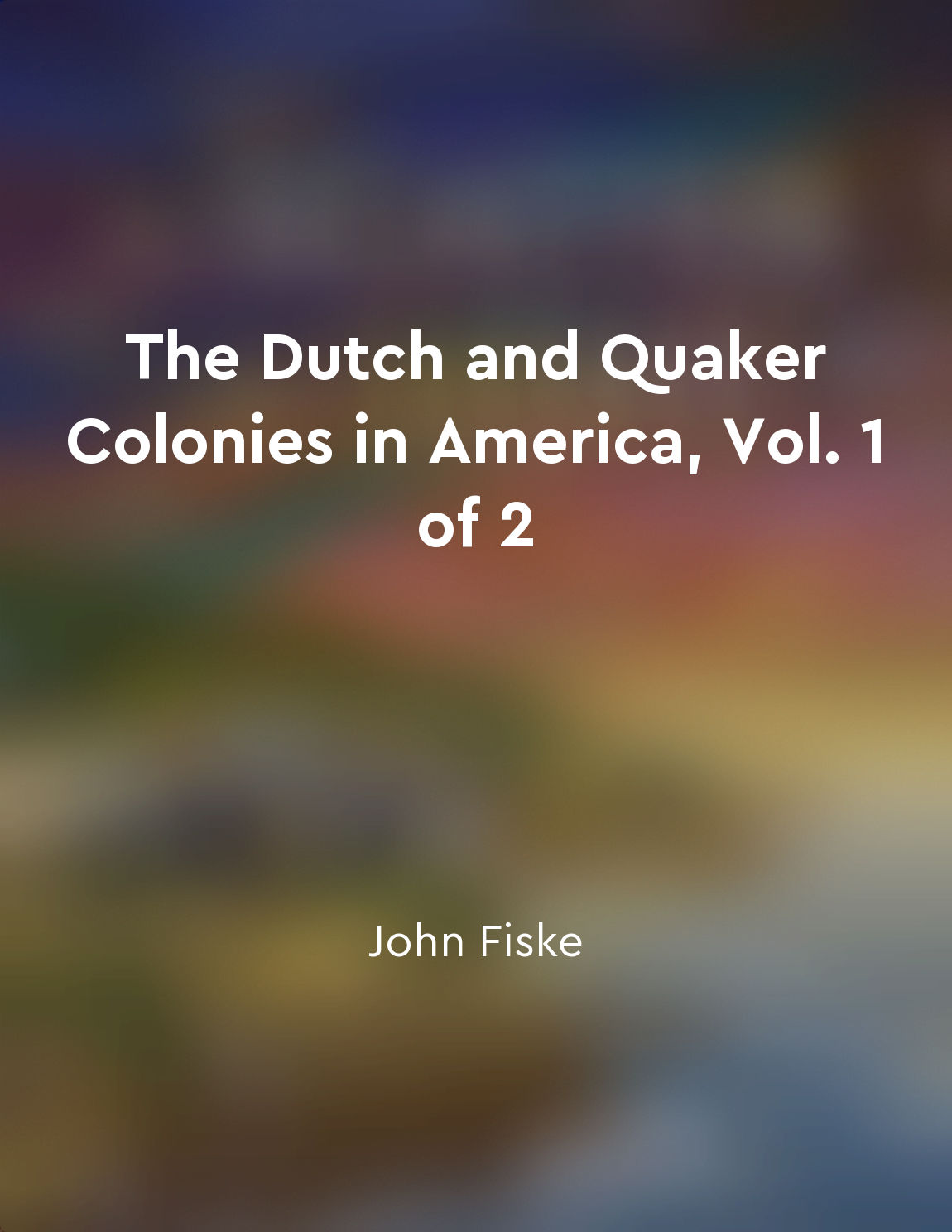Quaker ideals influenced American democracy from "summary" of The Dutch and Quaker Colonies in America, Vol. 1 of 2 by John Fiske
The Quakers, or Society of Friends, as they were officially called, were a religious group that emerged in England in the mid-17th century. Their beliefs and practices were based on simplicity, equality, and non-violence. These ideals were deeply ingrained in Quaker society and had a significant impact on their interactions with others, as well as their approach to governance. One of the key principles of Quakerism was the idea of equality among all individuals. Quakers believed that every person had inherent worth and dignity, regardless of their social status or background. This belief in equality extended to their political and social interactions, where Quakers sought to treat all individuals with respect and fairness. Another important aspect of Quaker beliefs was their commitment to non-violence...Similar Posts

Laws lay the foundation of society
The idea that laws form the basis of society is deeply rooted in the historical development of early human communities. This co...

Cessation of suffering is attainable through Nirvana
The Buddha taught that the ultimate goal of life is to attain Nirvana, which is the cessation of suffering. He believed that su...
Time and space are forms of intuition
In order to understand the concept that time and space are forms of intuition, we must first delve into Immanuel Kant's philoso...
Monotheism developed gradually over centuries
The idea of monotheism did not emerge fully formed in the ancient world. Instead, it developed gradually over centuries as diff...
Consequences produce happiness
In assessing the morality of actions, the principle of utility posits that the rightness or wrongness of an action is determine...
Strong social networks support social cohesion
One of the central themes that emerges from the research is the idea that strong social networks can play a crucial role in fos...
Horace Mann advocated for universal education
Horace Mann, a prominent figure in the history of American education, played a crucial role in advocating for the establishment...
Henry VIII's break with Rome
Henry VIII's break with Rome was a pivotal event in English history, with far-reaching consequences for the country's religious...
Authenticity of the Hadiths
The authenticity of the Hadiths plays a crucial role in Islamic teachings and practices. Hadiths are the sayings, actions, and ...
The state should prioritize the wellbeing of all citizens
Socrates argues that the state has a duty to ensure the wellbeing of all its citizens. He believes that a just state should pri...

